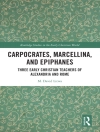In Margaret Wade Campbell Deland’s ‘The Rising Tide’, the author explores the changing dynamics of a small New England town as it navigates societal shifts in the early 20th century. Deland’s narrative style is rich in detail, offering a vivid portrayal of complex characters grappling with tradition and modernity. The book delves into themes of progress, morality, and the interconnectedness of community, making it a poignant reflection of its time. Deland’s writing is both lyrical and insightful, capturing the essence of human experience in a transformative era. ‘The Rising Tide’ stands as a compelling work of literature that transcends its historical context to resonate with readers today. Margaret Wade Campbell Deland’s own experiences growing up in Pennsylvania and her keen observations of societal changes provide valuable insights into her exploration of human nature and societal evolution within the novel. Readers interested in a thought-provoking and beautifully crafted story that offers both historical depth and timeless relevance will find ‘The Rising Tide’ to be a captivating read.
Over de auteur
Margaret Wade Campbell Deland (1857–1945) was an American novelist, short story writer, and poet, recognized for her penetrating analysis of social and domestic situations. Deland’s narrative style is notable for its compassionate portrayal of character and the subtle articulation of complex relationships within the moral frameworks of her time. Born in Allegheny, Pennsylvania, she grew into a literary force with a social conscience, often compared to her contemporary, Edith Wharton. Deland’s novel ‘The Rising Tide’ (1916) illustrates her skill in critiquing the constraints of societal expectations through her character’s lives, particularly concerning women’s roles and marriage. The book offers a telling reflection of progressive-era debates about personal autonomy, providing readers with a nuanced exploration of tradition versus reform. Deland’s oeuvre includes other important works such as ‘John Ward, Preacher’ (1888), which explores the conflict between religious orthodoxy and liberal theology, and ‘The Awakening of Helena Richie’ (1906), addressing issues of personal redemption. Despite Deland’s didactic purposes, her works remain enduring for their innovative use of dialogue and exploration of ethical dilemmas, securing her place in the American literary canon. Deland’s impact on literature extends beyond her narratives; she was a part of the influential literary circles of her day, and her home in Boston was a gathering place for notable writers and intellectuals, reflecting her central role in the cultural dialogues of early twentieth-century America.












